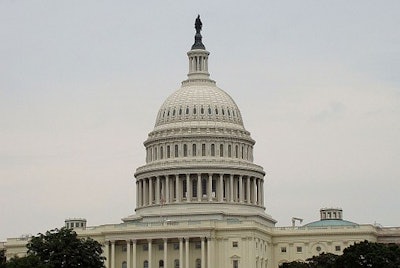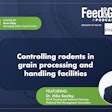
For only the second time in the last 60 years, beginning in January 2017, Republicans hold the Presidency and the majority in both Houses of Congress. There is a lot of excitement among Republicans that many of their proposals will now be able to move forward and be signed into law. The following are just a few of the broad issues important to U.S. agriculture in the year ahead.
Reforms and infrastructure
A whirlwind of legislative activity is expected, including health insurance reform with repeal and replacement of the Affordable Care Act; tax reform with the first major tax overhaul in more than 30 years resulting in reductions in corporate and individual income tax rates; and funding of infrastructure projects including highways, airports, waterways, etc.
International trade
The Transpacific Partnership Agreement (TPA) negotiated by the Obama Administration will not be presented to Congress forapproval and U.S. participation in TPP is effectively ended. During the presidential campaign, President Trump spoke about reopening trade agreements including the North America Free Trade Agreement (NAFTA) and being tougher with China on trade. He has also expressed his strong support for international trade, its importance to U.S. agriculture, and his goal of aggressive negotiation of improved trade agreements. The success of President Trump’s approach to international trade will be very important to U.S. agriculture. About one-third of U.S. farm production is normally exported with $134 billion estimated for 2017. Additionally, China, Mexico and Canada are top export markets for U.S. agricultural products.
Filling USDA positions
There were more than 4,000 positions that the new president needed to fill throughout the federal government. About 1,000 or so require Senate confirmation. At USDA alone, there were more than 100 positions with about a dozen requiring Senate approval. The Senate Agriculture Committee will hold a hearing for each of the agriculture related presidential appointees requiring Senate approval. In addition to considering the fitness of the appointees, most Senators will also take the opportunity to raise farm bill issues. These confirmation hearings will also serve as a kick-off to congressional consideration of the new farm bill.
Immigration reform
The Trump Administration and Congress are expected to take action on immigration issues in 2017. A major focus at first will most likely be on securing the border. Immigration reform will be very important for U.S. agriculture. Many in the agriculture labor force are undocumented workers — people who provide the labor to plant and harvest fruit and vegetable crops, milk dairy cows and care for livestock and perform many other tasks all across the country. Continuation and improvement of guest worker programs will need to be an important part of immigration reform for U.S. agriculture.
Regulatory relief
President Trump and the Republican leaders in Congress have pledged to eliminate onerous Obama Administration executive orders and regulations. Specifically for U.S. agriculture, the most important are likely to be environmental regulations including the Waters of the U.S., and possibly Food and Drug Administration rules on nutrition labeling.
2017 will be a period of great activity in many different areas as a new President and a new Congress respond to the outcome of the 2016 election.


















